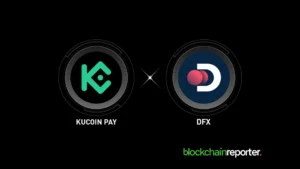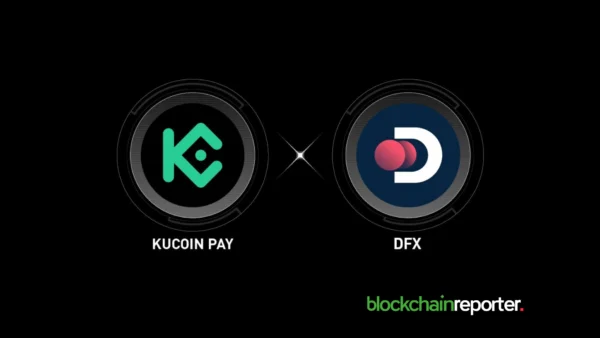
Multisig, short for multi-signature, is a type of digital signature. It requires two or more users to sign a document collectively. This technology combines multiple unique signatures to produce a multi-signature. Although multisig has been present in the cryptocurrency world, the concept predates Bitcoin.
In cryptocurrencies, multisig was first applied to Bitcoin addresses in 2012. It led to the creation of multisig wallets in 2013. These wallets address security concerns by requiring multiple signatures to access funds. This article explores the functionality and benefits of multisig wallets in the cryptocurrency space.
How Does Multisig Function?
Consider a secure deposit box with two locks and two keys, one held by Katherine and the other by David. Both keys are needed to open the box, ensuring mutual consent. Like the wallets, the funds saved in a multisig address can only be accessed by two or more digital signatures making it more secure.
Before explaining multisig, it is vital to explain a common type of Bitcoin address, which employs a single key. Therefore, the usage of a single-key address implies that the only authorization needed is the possession of the private key to access and transfer the funds.
Single-Key vs. Multisig
In a single-key address, issues are guarded by a solitary passage, which puts assets in danger of phishing and hacking. This setup is not suitable for business as well since it is either guarded with a single key or divided into numerous keys, the both being dangerous.
These problems are solved by multisig wallets. In a multisig address, there are multiple signatures which are developed by the various private keys that are needed for the address to access that money. Such schemes are 2 of 3 where two of the three keys are required to unlock the fund though 2 of 2, 3 of 3 as well as 3 of 4 are also possible.
Applications of Multisig Wallets
Enhancing Security
A multisig wallet does not allow the problems to appear due to the loss of a private key. For instance, Katherine generates a 2-of-3 multisig address and keeps the corresponding key on three different devices. When it comes to a single device being stolen, the funds are safe as the lock requires two keys to open. Deploying phishing and malware is also difficult for them since they would require an account with access to the multiple gadgets.
Two-Factor Authentication
The multisig wallet can also help Katherine use a two-factor authorization by using two keys. She could store one of the keys on the laptop while the other key was on mobile device. It is a system that makes certain only the person with both keys coming from the receptor and the sender can make a transaction. While you can use 2-of-2 multisig address, it is not safe if one key is lost, the better option is to use 2-of-3 setup or third-party 2FA service.
Escrow Transactions
A multisig of 2 out of 3 helps in the carrying out of escrow deals. For example, both Katherine and David can negotiate something with Charlie as an intermediary. Katherine pays the amount to the account and only both Katherine and David can withdraw the money. If David delivers what he has agreed to do both can lock-up the car using their respective keys. Still, they do not interact directly; Charlie only steps in when there is a controversy, and he unlocks the funds following his assessment.
Decision Making
Multisignature or multisig wallets can be applied for management of the commercial organization. Sometimes a board of directors might decide to have a 4 out of 6 wallet, meaning no one has sole access to the wallet. A majority agreement can only perform transactions and thus rein in the abuse of the company’s assets.
Examples of Multisig Wallets
Tangem Wallet
Tangem Wallet is a new type of hardware-based wallet that employs a smart card incorporated with NFC rather than the USB port. Tangem Wallet simplifies the user interface while keeping it as far away as possible from raw machinists and at the same time keeping it very secure.
Bitcoin Core
Bitcoin Core is the first Bitcoin wallet and is the one most developers use as the standard code of the Bitcoin protocol. Originally it is a full-node wallet which mean that it was involved in downloading the whole chain of Bitcoin and also verify it for safety and conspicuousness.
1inch Wallet
1inch Wallet is a multi-chain pocket from the 1inch Network where users may perform token swaps, and stake and connect with Decentralized Finance (DeFi).
Disadvantages of Multisig Wallets
Despite of having certain benefits multisig wallets have some disadvantages. Governance of a multisig address is relatively technical, especially if the users avoid third-party service providers. Using legal compensations can be elusive because blockchain and multisig addresses are relatively new, which means there is no legal ‘custodian’ of the shared wallets.
Conclusion
There are numerous benefits associated with multisig wallets that improve practicality and security of cryptocurrencies. They offer trustless escrow transactions, increased security, and superior business purposes. Although there are limitations, the availability of numerous advantages makes multisig technology more attractive for future adoption.
Frequently Asked Questions
What is a multisig wallet in cryptocurrency?
A multisig wallet, short for multi-signature wallet, is a type of cryptocurrency wallet that requires multiple private keys to authorize and execute a transaction. Unlike traditional single-key wallets, which rely on a single private key for access, multisig wallets distribute control among multiple parties, enhancing security and reducing the risk of unauthorized access.
How does a multisig wallet function?
In a multisig setup, a wallet is configured to require a certain number of signatures from a predefined set of private keys to approve a transaction. For example, in a 2-of-3 configuration, any two of the three designated key holders must sign off on a transaction for it to be executed. This approach ensures that no single individual has complete control over the wallet, promoting shared responsibility and reducing the likelihood of theft or loss due to compromised keys.
What are the benefits of using a multisig wallet?
Multisig wallets offer several advantages, including enhanced security through the distribution of control, protection against single points of failure, and the ability to implement shared custody arrangements. They are particularly useful for organizations, businesses, or groups that require collective decision-making for fund management. Additionally, multisig wallets can facilitate escrow arrangements, where trusted intermediaries can hold keys to ensure that funds are released only when agreed-upon conditions are met.








